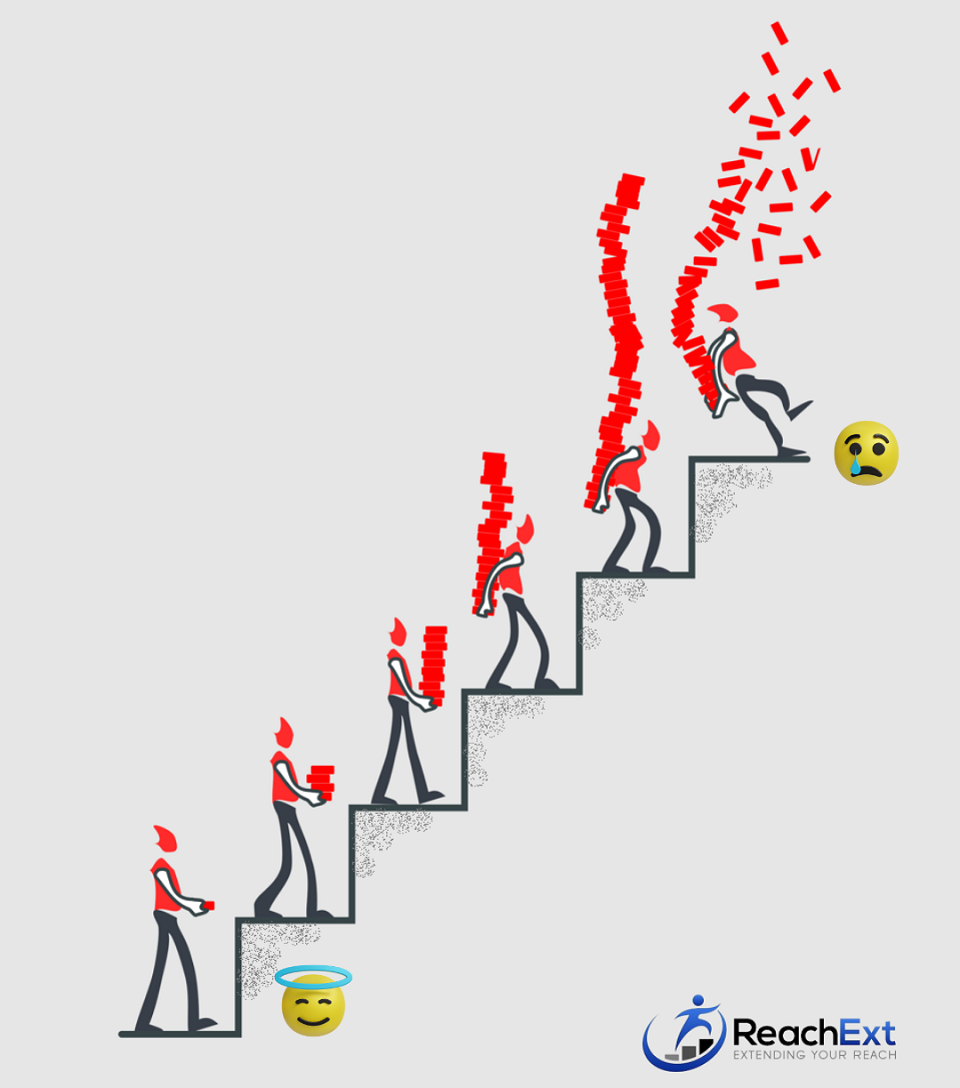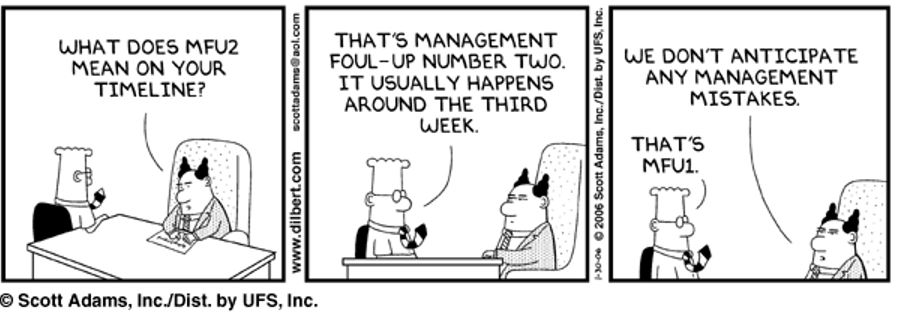“Peter Principle” could Lead to a Career Pitfall – Here’s How to Avoid it

Peter Principle is a concept that suggests that in most organizations, employees usually grow until they reach a level that is beyond their competence level. This means they will eventually reach a level where they cannot perform their duties effectively.
You might have been a loyal, hardworking employee at your organization for several years, knowing your job inside out. You could be a stellar sales associate, a phenomenal IT person, an exceptional engineer, or a great researcher or teacher. You’re good at it, and you’ve earned the professional respect of your colleagues and managers. But unfortunately, while you had everything going for you, you might have shut your eyes to a possible roadblock by the Peter Principle.
Now you’ve heard that a more significant role has opened up in your organization. A role perhaps one or two pay grades above what you’re currently on. You think you’d be a “shoo-in” for the position because you’re ready to move up in your career. And you believe you deserve that promotion. But can you be sure you’d be suitable for this new role?
Here’s the crunch: you might not be – and that’s because of the Peter Principle.
What is the Peter Principle?
Peter’s principle states that “in a hierarchy, every employee tends to rise to his or her level of incompetence.”
The Peter principle was named by the Canadian educator Dr. Laurence J. Peter, who described this hypothesis in his book “The Peter Principle” in 1968. Simply put, this principle means that employees keep succeeding in various roles and growing. And then they reach a position for which they are not fit. From here onwards, the downfall starts.
Peter was an educator born in Vancouver, British Columbia, who received his degree as a Doctor of Education from Washington State University in 1963. Later Peter moved to California to continue his career as an educator. His book “The Peter Principle” was on the Bestseller list in the US for 33 weeks and sold over a million copies.
Evidence that Peter Principle Works
We aren’t sure if Dr. Laurence J. Peter was being satirical or not because he arrived at this assertion without any actual data. However, from 2005 to 2011, three professors, Alan Benson of the University of Minnesota, Danielle Li of MIT, and Kelly Shue of Yale School of Management, conducted a statistical hypothesis test for the Peter Principle by analyzing employees’ promotion microdata from 214 companies.
This analysis was conducted to validate the Peter Principle for 53,035 sales representatives to see the performance of those who got promoted to managerial roles. The analysis of 1,531 employees who got promoted during those 6 years concluded that many of those who performed very well in direct sales failed to perform in their managerial roles.

Reasoning Behind the Peter Principle
Peter’s principle came up as a theory; however, it was a very logical theory. The above pictorial representation of this principle explains the reasoning behind it.
In any career, people get promoted mainly because they perform the required tasks as expected or better than expected. The issue is that the skill requirements for each role are different.
For example, a software programmer may have excellent programming skills. However, in the subsequent roles, the person will need good project management skills, including team handling, project estimations, risk analysis, and additional related tasks.
Now, suppose the person has reached the level of department head. In this role, programming or project management skills would not serve any purpose. The person will need solid leadership skills, better decision-making, presentation and public speaking skills, sales skills, and even knowledge of finance.
We have yet to reach the CEO level, which would require you to understand all the aspects of the business and actually run the business successfully.
Promotions come as a reward for performances, and organizations tend to miss the following two critical points:
- Giving proper weight to analyze the person’s suitability for the following role
- Preparing the person in advance to perform equally well for the higher responsibilities
The above points are the responsibility of both the organization and the employee. Missing these points causes the Peter principle to come into action, causing competitive people to reach a stage of ineffectiveness and incompetence.
Peter’s Principle Can Hurt Both the Employee and the Employer
On the surface, promoting employees for good performance sounds like a logical step for a company. The best employees are often rewarded with managerial promotions and greater responsibilities.
But now the bad news: confirming Peter’s Principle, the study mentioned above by Alan Benson, Danielle Li, and Kelly Shue found that once-rising stars in many organizations tended to perform poorly when placed in higher management roles.
Thus, the seemingly logical step of hierarchical progression as a measure of job success may hurt the company. It isn’t always in a business’s best interests to take a high-performing employee away from the job they were good at and put them into a role where they fail. This would hurt both the employee and the employer.
In the researchers’ own words, the costs of promoting workers with lower managerial potential are high. It indicates that the organizations are making inefficient promotion decisions or that the benefits of promotion-based incentives are significant enough to justify the mismatch of managerial costs.
Domino Effect of Peter Principle on Businesses
It’s hard to imagine any executive not knowing about the Peter Principle and its potential dangers. However, businesses often fail to pay enough attention to it and put enough effort into building mechanisms to avoid its risks.
But why?
The reason is simple: when we think about the Peter Principle, we often think about that poor single soul who did not keep upgrading himself or herself with career growth and fell into the trap of the Peter Principle very innocently.
No!!!
It’s not about a poor soul sitting in some dark, isolated corner. Not paying enough attention to the lurking shadows of the Peter Principle in every corner can have far-reaching effects and can hurt a business very badly.
And no, I will not go to that extreme to quote that Corollary to the Peter Principle that in time, every position within an organization will be filled with someone who is not competent to fulfill the duties of their role. No, that’s a very extreme and almost improbable situation.
However, even a few instances of Peter’s Principle affecting a few roles can have a very serious, far-reaching domino effect. It’s not about one person falling into the trap of this principle because that one person may be leading a team and can affect the morale and motivation of the entire team. An affected team can cause dissatisfaction in other teams and clients.
Try to imagine the domino effects of the Peter Principle by thinking about the following points:
- Possible employee attrition due to low morale of team members
- One team’s low morale may affect other teams.
- High employee replacement costs. By a conservative estimate, the direct cost of employee replacement is 150% to 200% of an employee’s annual salary.
- Direct and indirect business and opportunity losses
- Possible customer dissatisfaction and customer attrition
The list can go on and on!!!
Why Doesn’t Passing Down Tips & Tricks of Past Successes Work?
But why does this happen? Indeed, that outstanding employee, now promoted to a managerial role, would also be able to mentor and lead a team to success if they imparted the tips and tricks of their success to the team.
When you examine this a bit more closely, it is a causal fallacy. While a high-performing employee may have excellent skills in their previous job, managing people requires a different skill set, including specific soft skills.
The Peter Principle seems to be the reason why the cliché of the incompetent manager is so common. It also gave Dilbert creator Scott Adams an endless supply of comedic material in his cartoon series.

So, what does all of this mean regarding that promotion you’re eyeing?
It is too easy to get carried away and start relishing the thought of the social prestige of a promotion. Moreover, you can enjoy the lifestyle upgrades you could make with that higher salary. First, however, you need to ask yourself if you are prepared to handle a role that would be substantially different from what you were good at.
You may be a great salesperson because you enjoy that rush you get when closing a sale. Or you love the technical challenges of your IT job. Analyzing data sets makes you happy. You may enjoy your job at your company’s reception desk because you meet different people daily.
But would you be happy managing a team of employees?
A team naturally comprises disparate individuals with different personalities, quirks, shortcomings, and strengths. Would you be content that you no longer have to spend your days in front of your laptop, writing those strings of code but attending endless management meetings?
Or would you enjoy the relative solitude of a C-suite office, or would you miss the daily social interactions of a helpdesk? Would you know what to do if a subordinate was underperforming, not getting along with other team members, or simply not answering the emails you marked “URGENT” because they attend personal matters? Could you deal with it, or would that cause you untold stress?
Tips for Employees to Beat the Peter Principle
Doubtless, many great employees do have the potential to make great managers. Perhaps the Peter Principle would be better viewed as a caveat or a career checkpoint, especially when you are angling for a promotion within your company or organization.
We all want to grow in our careers. However, growth should mean more success and not going to a point from where a downward slope starts. The following tips are important to beat the Peter Principle for a continued momentum of career growth:
- Firstly, you must be self-aware to realize that you may not be cut out for that next role, no matter how juicy it sounds. Taking on a more significant role may not be worth your overall job satisfaction. But, again, this is because you know your strengths, which make you so good in your current position. Moreover, success doesn’t lie in a title only. The percentage of employees declining a promotion is increasing, and not without reason.
- If you accept that promotion, identify the areas you need to get up to speed for the new role. New to managing people? Buy some good management books, and start reading because – we promise you this – management involves much more than just telling others what to do.
- Get to know your new subordinates, even if they were once your peers. Be aware of any resentments that can arise from your promotion. Then, start on the right foot by asking them how you can support them in their work.
- Don’t be too proud to ask for the guidance or mentorship you need to tackle your new role, whether from your colleagues or higher up in your work hierarchy. Even if it feels like you are over your head, you can quickly become competent in your new role if you give yourself a fighting chance.
- Get specific training: Sales legend Zig Ziglar once said: “Life is a classroom. Only those who are willing to be lifelong learners will move to the head of the class”. Your new role might reveal the areas you may need to acquire new knowledge of project planning and management. Especially how to set goals for your team, organize people – and the list goes on.
Lastly, start introspecting and observing others. Introspection and open observation are the best learning and development tools. Just by these, you can see your weaknesses & strengths as well as others. Use introspection and observations to improve on and beat the Peter Principle and its logic before it can put a break on your career growth.
What Should Employers Consider for Promoting Employees
Promotions are a must, as a reward for good performance to keep the employees motivated. However, some continuous focused efforts are a must to avoid fallout due to the Peter principle effect. This is because the direct and indirect effects can be too costly to afford.
Following are the important points not just to safeguard from possible disasters but also to derive the best value from the potential of employees:
Identifying Future Leaders and Grooming Them
A systematic, scientifically defined process and mechanism to identify future leaders can add much value to organizations. Such a mechanism lets a company know employees’ potential more clearly from an early stage. Moreover, this allows the organization to groom employees in the required areas systematically. Such a process also keeps high-potential employees continuously motivated.
Periodic Review of the Fitment
Even though organizations spend a considerable amount of time on the hiring process, not all selections are ideal.
It’s very important to have a mechanism in place to analyze the strengths and weaknesses of the employees, even in their current roles.
For example, an organization might have hired an employee for a sales role. The employee may be very good at sales as a farmer, but his current responsibilities may involve more of a hunter’s role. In such cases, a proactive change of responsibilities can not only go a long way to avoiding Peter Principle’s effects in the future but also add value in the present.
In any case, don’t let people get stuck doing the same thing for a very long time. Remember that stagnant water is a good incubator for many types of bacteria and parasites.
Thorough Prescreening Before the Promotion
What we do continuously can always have some lapses. So, even with all the above systems in place, thorough and transparent screening helps before promoting an employee to higher and different responsibilities. Transparency is a must so that the organization and employee are on the same page and the outcome doesn’t leave a bitter taste.
Promoting without Role Change
Every professional organization has an employee cadre or band system. This system allows employers to promote an employee to higher care without any change in the roles & responsibilities. There are multiple bands for each role, and such promotions keep employees motivated without the risk of any unpleasant consequences of the Peter principle.
However, a balanced and planned approach to deciding the cadre system is needed from the beginning.
We can find many examples of organizations growing in size and adding new cadres or bands. This can be counterproductive.
For example, suppose that an employee is in the highest band of a particular title, and the next cadre promotion is supposed to take him to a higher title and role. In such a case, if, by coincidence, the organization introduces a new cadre for the same role, the employee may get demotivated, even getting that promotion to the new cadre.
Conclusion
Unfortunately, incompetent bosses and ineffectual management are an all-too-common gripe among employees across industries. You, too, might have wondered at some point in your career how, on earth, your inept manager ever got their job. Now you know, and this knowledge is the first step for you not to become the same. It is the first step towards beating the Peter Principle and not being a boss whom you criticized sometime in your career.

Coming from an IT background of SAP consulting, IT Business development, and then running the country operations of an IT consulting multinational, Himanshu is co-founder and Managing Director of ReachExt K.K., and EmploymentJapan.com. He is also an Advisory Board Member of a Silicon Valley AI/IoT startup.